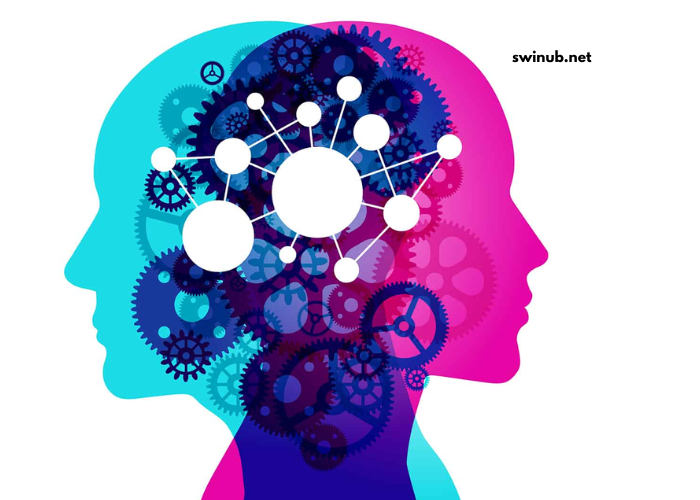Maintaining mental health is a critical aspect of overall well-being. In today’s fast-paced world, where stress, anxiety, and emotional challenges are commonplace, it becomes increasingly important to implement strategies that promote mental wellness. Mental health is not just the absence of mental illness, but also a state of emotional, psychological, and social well-being. It affects how we think, feel, and act in our daily lives, and plays a crucial role in how we handle stress, relate to others, and make choices. In this article, we will explore key mental health strategies that can help you maintain a balanced lifestyle and enhance your mental well-being.
Why Mental Health is Crucial for a Balanced Lifestyle
In our modern society, people often juggle multiple roles — work, family, social obligations, and personal interests. These responsibilities, while fulfilling, can take a toll on mental health. Without proper management, individuals may experience burnout, stress, and a lack of emotional stability. Mental health influences everything, from our capacity to build meaningful relationships to our productivity and overall satisfaction in life.
When mental health is neglected, it can lead to emotional and psychological struggles, such as anxiety, depression, or chronic stress. Implementing mental health strategies allows individuals to maintain emotional equilibrium, enhance resilience, and improve their quality of life.
The Role of Mental Health in Emotional and Physical Well-being
Mental health affects both emotional and physical well-being. When you’re mentally healthy, you’re better able to cope with daily stresses and challenges. On the contrary, poor mental health can lead to physical symptoms such as fatigue, headaches, or stomach issues. Moreover, untreated mental health problems can make it harder to focus, make decisions, and interact positively with others.
By prioritizing mental health and adopting the right strategies, you can cultivate a balanced lifestyle, improve your emotional state, and boost your physical health.
Effective Mental Health Strategies for a Balanced Lifestyle
There are various strategies that can help foster mental wellness and support a balanced life. These strategies, when incorporated into daily habits, can contribute to long-term well-being.
1. Regular Exercise and Physical Activity
The Connection Between Physical Health and Mental Health
Exercise is one of the most effective ways to improve both physical and mental health. Engaging in regular physical activity releases endorphins, also known as “feel-good” hormones, which can reduce stress and enhance mood. Research shows that individuals who engage in regular exercise experience lower rates of anxiety and depression compared to those who are sedentary.
How Exercise Helps with Mental Health
Physical activity, especially cardiovascular exercises such as walking, running, cycling, or swimming, can help reduce symptoms of anxiety and depression. Exercise has also been shown to improve cognitive function, boost self-esteem, and promote better sleep. Even just a 20-minute walk in nature can provide significant mental health benefits.
Tip: Aim for at least 30 minutes of moderate exercise three to five times a week to experience noticeable improvements in mental health.
2. Practicing Mindfulness and Meditation
What is Mindfulness?
Mindfulness is the practice of being present in the moment, without judgment. It involves focusing your attention on the here and now, and being aware of your thoughts, feelings, and bodily sensations. Mindfulness helps reduce rumination, the tendency to overthink or dwell on negative thoughts, which can contribute to stress and anxiety.
Meditation Techniques for Mental Clarity
Meditation is a form of mindfulness that helps train your mind to remain focused and calm. There are different types of meditation, such as guided meditation, breathing exercises, or body scanning techniques, all of which help in managing stress, reducing anxiety, and promoting emotional stability.
Tip: Set aside 5-10 minutes daily for meditation or mindfulness exercises to build resilience and emotional strength.
3. Building Strong Social Connections
The Importance of Social Support
Human beings are social creatures, and positive relationships play a significant role in maintaining mental health. A strong social support network can help individuals cope with life’s challenges, provide emotional comfort, and reduce feelings of loneliness and isolation. Interacting with friends, family, or colleagues can uplift your spirits and improve your emotional well-being.
Nurturing Meaningful Relationships
Building and maintaining meaningful relationships is essential for emotional support. Engaging in regular conversations with loved ones, joining social groups, or participating in community activities can create a sense of belonging and help buffer against stress.
Tip: Make time for social activities, even if it’s just a phone call or a coffee date with a close friend, to strengthen your support system.
4. Getting Sufficient Sleep
The Link Between Sleep and Mental Health
Quality sleep is essential for both physical and mental health. Sleep allows the brain to rest, process information, and restore itself. Insufficient or poor-quality sleep is linked to an increased risk of mental health conditions such as depression, anxiety, and mood disorders.
How to Improve Sleep Quality
Practicing good sleep hygiene can significantly improve the quality of your rest. This includes setting a consistent sleep schedule, creating a relaxing bedtime routine, and ensuring your sleep environment is conducive to rest (cool, dark, and quiet). Limiting screen time before bed and avoiding caffeine or alcohol in the evening can also promote better sleep.
Tip: Aim for 7-9 hours of sleep each night to maintain mental and physical health.
5. Eating a Balanced Diet
The Impact of Nutrition on Mental Health
The food we eat directly influences brain function and mental well-being. Nutrient-rich foods such as fruits, vegetables, whole grains, and lean proteins provide essential vitamins and minerals that support cognitive function, mood regulation, and emotional stability.
Foods That Support Mental Health
Incorporating foods rich in omega-3 fatty acids (such as salmon and walnuts), antioxidants (such as berries and leafy greens), and vitamins (such as vitamin D and B vitamins) can improve brain health and reduce the symptoms of depression and anxiety. Avoiding processed foods, excessive sugar, and caffeine can also help maintain balanced emotions and energy levels.
Tip: Focus on a well-rounded, nutrient-dense diet to support both brain and body health.
6. Setting Realistic Goals and Managing Stress
The Importance of Goal Setting
Setting clear, realistic, and achievable goals is crucial for maintaining mental clarity and focus. Goals provide a sense of purpose and direction, which can help boost motivation and reduce feelings of uncertainty or aimlessness.
Managing Stress Effectively
Stress is a natural part of life, but when it’s unmanaged, it can negatively affect mental health. To effectively manage stress, it’s essential to prioritize tasks, break them down into smaller steps, and set boundaries to avoid overwhelming yourself. Relaxation techniques, such as deep breathing exercises, progressive muscle relaxation, or journaling, can also help alleviate stress.
Tip: Practice time management skills, break down large tasks, and incorporate stress-relieving activities into your routine to maintain balance.
7. Seeking Professional Help When Needed
Therapy and Counseling
While self-care strategies are important, it’s also essential to seek professional help when necessary. Therapy or counseling with a trained mental health professional can provide guidance, emotional support, and practical coping strategies for dealing with mental health challenges.
Medication for Mental Health Issues
In some cases, medication may be necessary to treat mental health conditions such as anxiety, depression, or mood disorders. A healthcare provider can assess your condition and recommend an appropriate treatment plan that may include therapy, medication, or a combination of both.
Tip: Don’t hesitate to seek professional help if you feel overwhelmed or unable to manage your mental health on your own.
Creating a Daily Routine for Mental Wellness
Incorporating mental health strategies into your daily routine is key to long-term well-being. By prioritizing self-care, setting goals, staying active, and nurturing relationships, you can create a balanced lifestyle that supports both your mental and physical health.
Tips for Establishing a Routine
- Plan your day: Start your morning with a routine that sets a positive tone for the rest of the day. This could include meditation, stretching, or setting your intentions for the day.
- Take breaks: Throughout your day, incorporate breaks to relax and recharge. A short walk or a few minutes of deep breathing can help you stay calm and focused.
- Stay flexible: Life can be unpredictable, so be flexible with your routine. It’s important to allow yourself grace when things don’t go according to plan.
By adopting these strategies, you can ensure a balanced lifestyle that nurtures your mental health and emotional well-being.
Conclusion
Mental health is a vital component of a balanced and fulfilling life. By incorporating strategies such as regular exercise, mindfulness, healthy eating, strong social connections, quality sleep, and effective stress management, you can cultivate emotional resilience and maintain mental wellness. Remember that taking care of your mental health is not a one-time effort, but an ongoing practice. Small, consistent changes can lead to long-lasting improvements in how you feel and function every day. Prioritize your mental health today, and it will undoubtedly lead to a more balanced and harmonious lifestyle.


